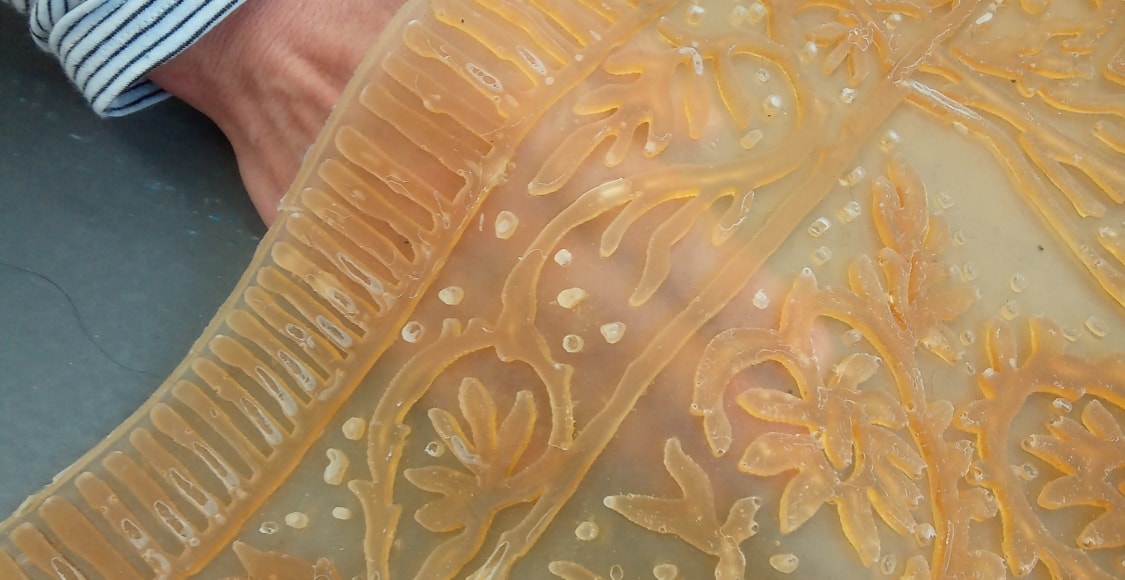
Advanced Master: master of Research in Art and Design
The advanced master program focuses on research development of artists and designers whose practice is anchored in a social-political context.
The program develops in accordance to the specific research proposals of the participants and offers intense coaching in research methodology, writing and critical studies.
Special focus
This advanced master program focuses on research development of artists and designers whose practice is anchored in a social-political context (including but not limited to feminism, social design, migration, decolonialism, class politics, queer politics, disability politics, capitalism, identity, Anthropocene, the (under)commons, community art, conflict&design, healing&rituals, history, big data…). The program offers time and space to do research without the requirement of any particular final format such as an exhibition or production.
The focus is on artistic research and research exchange. The program is aligned to each participant’s work rhythm and caters for specific theoretical interests by inviting a diversity of voices from a variety of fields that can cater to the individual and collective research interests. Collective learning and participatory coaching are central to the program; it comes with the engagement of each participant to care for each other’s wellbeing and research development. We offer a coaching and participation methodology that is anchored in intersectional situatedness and care.
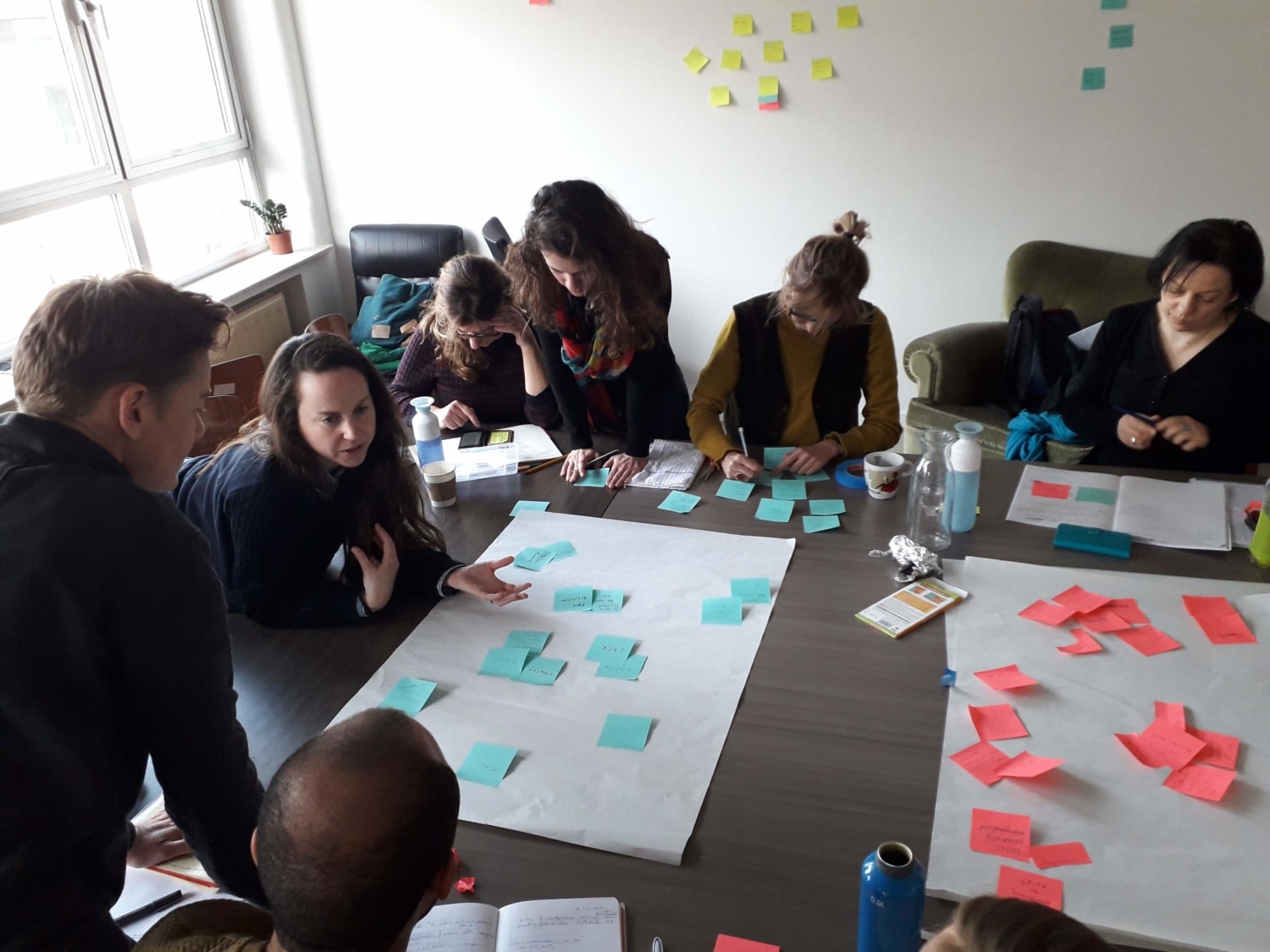
Program
The concrete program is developed in accordance to the specific research proposals, interests and needs of the participants. It offers intense coaching in writing, critical studies and research methodologies in arts and design. The coaching is individual, collective and participatory; every participant is invited to expand our knowledges and responsibilities. There is a strong focus on sharing research; this means collectively designing productive formats to share our insights and creating a sustainable international research network.
The program is structured in three full day sessions every three weeks. These sessions will focus on the participants’ specific research proposals and enable them to advance in writing, theoretical explorations, research methodology, and sharing their research. Parallel to this trajectory we also offer three international, intensive and collaborative, one-week modules with distinguished artists, designers and professionals across the fields of artistic research. These guests will be selected in relation to the specific interests of the participants.
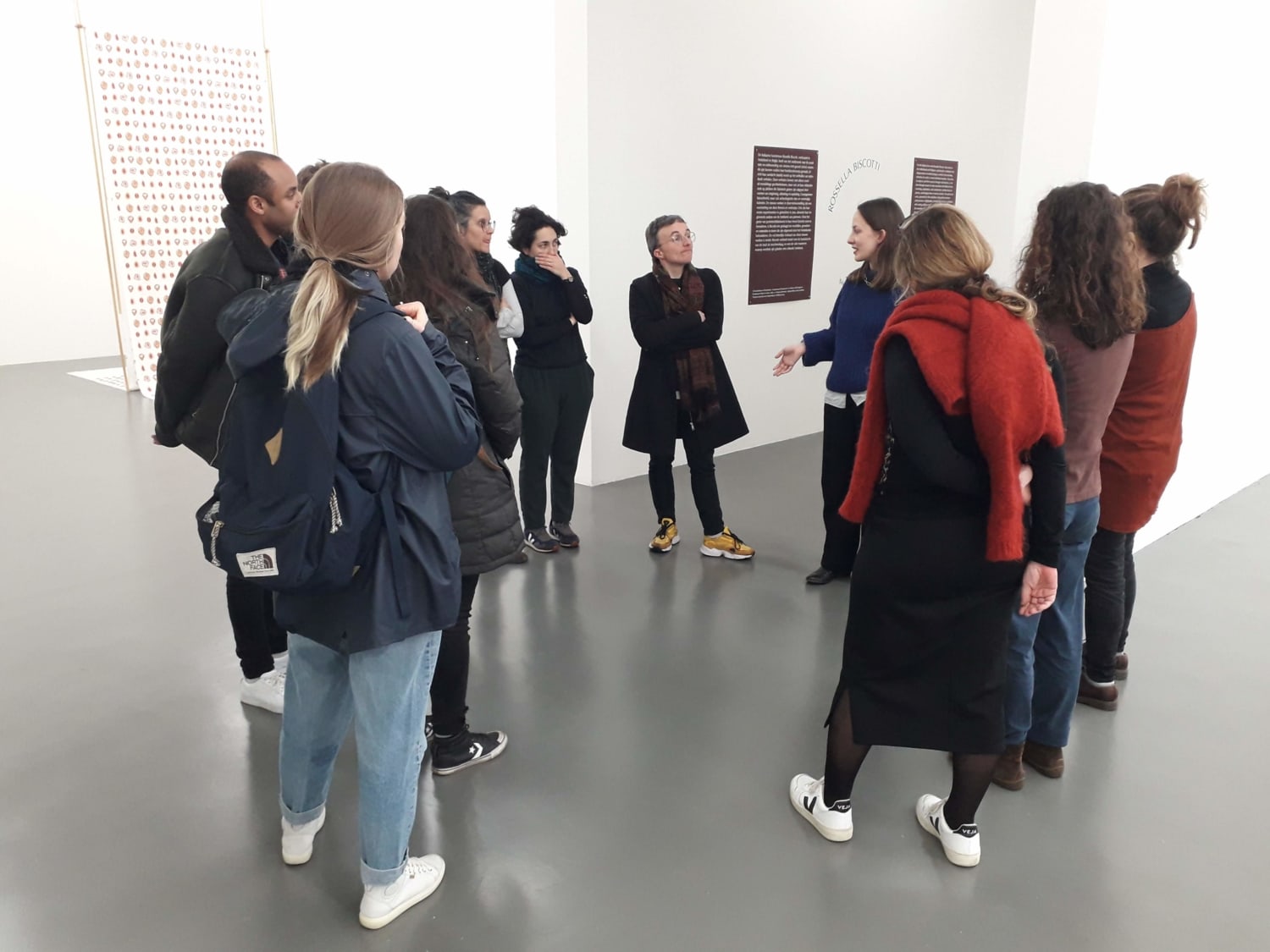
For who?
We work with a small team of maximum 12 students to create opportunities and develop a network to strategize sharing research publicly. The ideal candidates are artists or designers who have developed an individual or collaborative practice and want to work for one year on a research project related to their practice.
The program is particularly suitable to those interested in critically developing their practice within a social-political field or in preparation for a successful PhD project.
The participants will be expected to be present at the sessions every three weeks and at the three intensive modules. They will participate and engage in debates and pursue a thorough critical reflection and practice of collective care, situatedness and responsibility.
We offer a nurturing research environment of dedicated and experienced tutors, junior and senior researchers and PhD students as well as an international network of professionals, institutions and guest lecturers. Small collectives or artistic duos are also encouraged to apply!
Practical information
The Advanced Master: Master of Research in Art and Design is intended for candidates with a master’s degree. Holders of both a master’s degree in visual arts or design and in other subjects with an artistic practice can apply with a portfolio, a letter of motivation, and a research proposal.
Maximum number of participants is 12. The application process closes on 8 March 2021.
The selection committee, consisting of the head of research, the program coordinator and the tutors makes a first selection based on your application file. After a positive first evaluation, you will be invited for an interview. You will be invited for this at the latest one month after the application’s closing date.
The tuition fee for 2021-2022 is 2500€.
The fee can be paid in three installments.
There are no scholarships available.
The program starts the last week of September.
Non-European candidates need to take into account the time needed to apply for a student visa, please check this link for the conditions.
For more information, please contact Joud Toamah, coordinator Advanced Master or Petra Van Brabandt, head of research at Sint Lucas Antwerpen.
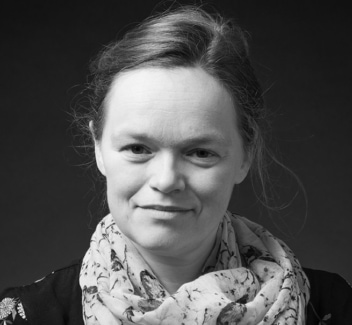
Petra Van Brabandt
Joud Toamah
Tutors
Kim Gorus
I am a teacher and researcher at Sint Lucas School of Arts, Antwerpen. My research focuses on the intermediate space between literature and the visual arts. I teach courses on Narrative Strategies in Art & Design, Writing and I am a thesis coach for students in their master’s degree.
I am the tutor of the Writing module within the Advanced Master program.
This module will incorporate three different takes on writing: a contextual survey of the praxis of writing within and without academia, a training of academic writing skills and an exploration of creative writing. Through the reading of texts, class discussions and (collaborative) writing and editing exercises, we will investigate the possibilities of writing as practitioner-researcher.
Nataša Petrešin Bachelez
I was born in Ljubljana, Slovenia, and since 2005 live and work in Paris. I work as an interdependent curator, writer and editor and my research touches fields of knowledge and practice such as situated curatorial practices, empathy and transnational feminism, slow institutions, performative practices in the former Eastern Europe, and engaged artistic practices in the era of the Anthropocene/Capitalocene. In 2021 I was nominated as Cultural Programmes Manager at the Cité Internationale des Arts in Paris.
From my most recent curatorial projects I would like to mention two that profoundly affected me on professional and personal level, Contour Biennale 9: Coltan as Cotton (Mechelen, 2019), « Defiant Muses. Delphine Seyrig and Feminist Video Collectives in France in 1970s-1980s », presented at the Museum Reina Sofia, Madrid and museum LaM, Lille (with Giovanna Zapperi, 2019). More recently, I co-founded together with Elena Sorokina the Initiative for Practices and Visions of Radical Care, which is based in Greater Paris region.
I am the tutor of the Theory module within the Advanced Master program. With the students, we are reading together texts of authors of various disciplines and written in various geopolitical contexts that address the complexity and socially as well as ecologically unjust conditions of living in the contemporary moment. We are discussing about intersectionality, critiques of the Anthropocene concept, decolonial ecology, black feminism and coloniality of power and gender, while attempting to answer the questions : What makes you read a certain text ? When did it occur that a theoretical text changed your view or move you ? How does a text find you ?
Wesley Meuris
I am a visual artist, mainly working with installations, sculptures and drawings. During the last decade, I investigated different forms of cultural classification systems, their linguistic, social, political and architectural translations. Since 2009 I am a researcher at Sint Lucas School of Arts, Antwerpen. In 2017 I published my PhD in the format of ‘The Foundation for Exhibiting Art & Knowledge’.
Together with Loraine Furter I’m responsible for coaching and supporting participants of the Advanced Master program in their research trajectory. The Research Methodology module aims at exploring, questioning and discussing central questions concerning artistic research in general, as well related to the individual research of the participant.
Loraine Furter
I am a graphic designer and researcher based in Brussels since 2007, specialized in editorial design, hybrid publishing and intersectional feminism. I design and edit paper publications as well as web and digital ones, and am particularly interested in the interaction between these media. I’m currently working on a research project entitled Speaking Volumes — art, activism and feminist publishing. I am a PhD student in Sint Lucas Antwerpen, and also part of the cyberfeminist collective ‘Just for the record’.
I am taking care of the Research Methodology module within the Advanced Master , in collaboration with Wesley Meuris. In this module we discuss with the participants about different tools to do research, and the ethical and political questions that come with each protocol.
Marnie Slater
I was born in Aotearoa New Zealand, and currently live in Brussels. I am a visual artist and my work engages with multiple formats, including sculpture, collaboration, editing, performance, painting, and installation. Alongside my solo work, I am a member of the All the Cunning Stunts, co-curator of Buenos Tiempos Int. and part of the team of Mothers & Daughters: A Lesbian Bar. I have previously taught at l’ERG (Brussels) and on the Master of Voice program at the Sandberg Instituut (Amsterdam).
I lead the ShareResearch module within the Advanced Master program. ShareResearch is taught from a feminist and queer perspective and focuses on the possible motivations, processes, contexts and effects of sharing our research with others. The module considers research to be both an individual and collective part of art and design practice, and we try to consider the potential of self-organizing as a critical, collaborative research tool.
Joud Toamah
I am an interdisciplinary graphic designer and visual artist. I’m currently the coordinator of the Advanced Master program and working as a freelance designer engaging in commissions and collaborations. At the same time, I explore new visual paths inspired by poetic encounters of photographic archives in digital and intimate contexts, an ongoing research I’m developing at Aair Antwerp and Foto Museum FOMU.
2020-2021
Forthcoming
2019-2020
Visit Rather raw but turning softer – Advanced Master: Master of Research in Art & Design 2019-20 presentation.
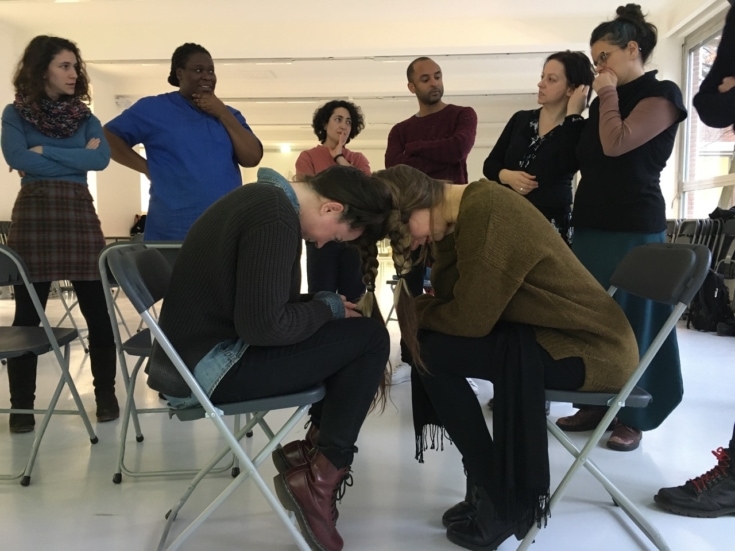
Intensive weeks 2019-2020
Intensive Week I “Module for Temporary Infrastructures” with Sepake Angiama & Byron Kalomamas (December 2019)
Module for Temporary Infrastructures delves into the politics of care in relation to material gestures, devices, the body and the voice. Examining the body as a sensing tool will be our entry point for collective research. We are eager to propose this framework for collective research, discussions and thinking in order to disturb the dominant narratives on individual practice in order to create new infrastructures of support.
Intensive Week II “Containment and Contagion” with Gaelle Choisne & Lotte Arndt (Februari 2020)
“Containment and Contagion” will deal with toxicity as a metaphor, as a relational phenomenon, and as a material reality. A specific focus is put on colonial history and its present-day aftermath.
Intensive Week III “ Returning (to) the archive” with Joachim Ben Yakoub a.o. (March 2020)
“Returning (to) the archive” will invite participants to to artistically explore, excavate, compile and edit hidden, suppressed neglected or marginalized (visual) archives and histories, to learn to be conversant with different archival methods and concepts within their artistic practice.
Intensive Week IV with Lara Khaldi & Yazan Khalili (April 2020)
Guest tutors 2019-2020
Paul Hendrikse, Natasha Soobramanien, Luke Williams, Sepake Angiama, Byron Kalomamas, Mashid Mohadjerin, Grace Ndiritu, Lotte Arndt, Gaelle Choisne, Hicham Khalidi, Maria Lucia Cruz Correia, Lara Khaldi, Yazan Khalili, Joachim Ben Yakoub, Pascal Gielen, Malcom Ferdinand, a.o.
Students 2019-2020
Lucy Cordes Engelman (USA)
Lucy is currently researching the historically suppressed folklore — in contrast to the more dominant narratives — that exist in the former ‘low countries’ relating to water. She is delving into current values and fears relating to the possibility of flooding, and she is curious about the possibilities of hydrofeminism in fluidity with haptic cinema as a converging delta, flowing into new ways of living with water and the more-than-human world.
Simona Da Pozzo (Italia/Venezuela)
Research title: “Hacking Monuments”
To which extend does the hacking of monuments stress and re-code the relationships between people, heritage, art and power? This auto-ethnography researches the phenomena of hacking monuments, which has a performative character, by weaving multilayered connections between monuments, denizens, activist and artists.
Risk Hazekamp (Netherlands)
Research title: “Facing White in Black Histories – how cyanobacteria shed light on colonialism”
Risk starts from the confrontation with the toxicity of the medium of analog photography and dissects both its chemical as its racist implications. By connecting photosynthesis to analog photography, Risk relates the ancient wisdom of cyanobacteria, being the first to produce oxygen in the atmosphere, to processes of colonization and suffocation.
Anna Housiada (Greece)
Anna’s research originates with a century-old cookbook that illustrates a still-dominant identity narrative in Greece which idealises models of the West and demonises influences of the East. Starting from the premise that identity is constructed in relation and not in isolation, her research is exploring the relationship with the non-Western Other and the sense of belonging within the diverse communities of the West and their established cultural hierarchies.
Agata Jastrzabek Filarowska (Poland)
Research title: “The Word became Flesh” (Bible, John 1:14)
Agata’s research explores the transition and a movement from logos (gr. word in the sense of semantics) to egneto (gr. flesh, essence). Her search circulates within the tense and vital relationships between transcendence and embodiment, spiritual and erotic, physical and imaginary (in the sense of mundus imaginalis as defined by Shiite mysticism). Content and methodology are intertwined in her daily practice with kamancheh, voice, touch and writing.
Alicia Jeannin (France/Chile)
Research title: “Quand ils parlent… “
This research project aims to apprehend the relationship between oral language and power, through a theoretical and practical exploration of political speeches performed in the public space.
Anne Marie Moreira Sampaio (Brazil)
On her research, Anne Marie currently explores the power and flexibility of language in the Brazilian social-political context, with a focus on the oral and written manifestations of extremist president Jair Bolsonaro. Based on that, she isolates words and sentences from Bolsonaro’s speeches, in an effort to create new places for those words to inhabit (audio pieces, lyrics, collages, objects). By doing this, Anne Marie seeks to shift the energy and weight of language by opening up the possibility of creating poetry, joy, beauty and pleasure from words that were previously used to attack, confine and exclude.
Felipe Muhr (Chile)
His research project is an investigation in the relationship between drawing and nature, focusing on concerns about the representation of animals and picturing extinction, mainly in contexts where drawn pictures are used as vehicles of knowledge, entertainment and mass communication.
Paz Ortúzar (Chile)
Paz researches, by way of a series of experimental art pieces, the hegemonic imposition of current measurement systems as neutral infrastructure and immovable truths. She investigates the ties that contemporary measurement systems have with spirituality, science and colonialism, and how these three perspectives are intrinsically woven within its political power.
Tunde Toth (Hungary/Ireland)
Tunde’s research is an investigation of commoning methodologies developed by artists working in collaborative, co-operative, conversational social arts practices. She is interested in long term projects addressing social exclusion, social justice and environmental/climate activism.
Kaat Van Doren (Belgium)
Research title: “Golden Hour, an in-situ research installation”
Research question: Will sunlight ever return to the same place?
Her work reflects on the (in)visible processes of change and human dependence on natural (in)predictable phenomena in which humankind becomes entangled.
Pierre-Antoine Vettorello (France/Ivory Coast)
Pierre-Antoine is researching the potentiality of craft, in this case basket making in the context of Ireland, to soothe and comfort a process of migration, within the contemporary context of Direct Provision Centers (centers for refugees).
Apart from that he is also researching his family tree, gathering testimonies of his grandmother about her grandfather Galandou Diouf, who was the deputy of Senegal in the A.O.F. (the federation Afrique-Occidentale française) from 1934 until 1941.
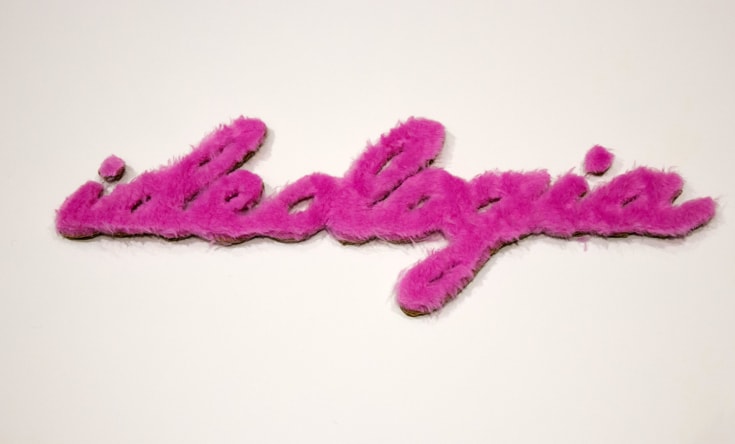
Header : Photo by Risk Hazekamp & artwork by Rossella Biscotti